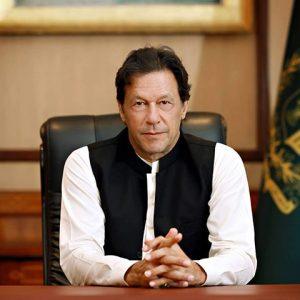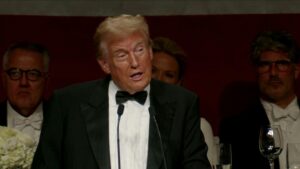Political marginalization of Muslims and integrity of elections in Kashmir
Although Kashmir may be voting in large numbers, systematic disenfranchisement of the majority Muslim community population not only undermines democratic principles but also risks further eroding their trust in the democratic process and governance
By Iftikhar Gilani
The democratic framework of many nations, including in South Asia, is modeled on the British system where representatives are elected by the majority to govern.
In countries where inclusive democracy prevails, minority groups are represented in proportion to their population size. However, even in such systems, the majority usually has the greatest influence on the formation of government.
India also follows this model, where elections are held and governments are formed according to the British first-past-the-post system. However, this democratic principle seems to have been challenged in Jammu and Kashmir, where recent developments indicate a deviation from these basic norms.
Currently, the election campaign in Jammu and Kashmir is in full swing. However, through strategic gerrymandering and numerous other measures, it appears that the new assembly will not truly represent the Muslim-majority population of the region. The reason for this is the demographic reality that differentiates Jammu and Kashmir from the rest of India.
According to the 2011 census, Muslims make up 68.3% of the region’s population, while Hindus make up 28.2%.
Although they form the majority, Muslim representation in the state legislative assembly has been significantly diluted through systematic changes in constituency boundaries and seat distribution.
The Delimitation Commission’s decision of 2022 allocated 47 seats to the Muslim-majority Kashmir Valley, which accounts for 56.15% of the state’s population, while Hindu-majority Jammu got 43 seats, accounting for 43.85% of the population.
This distribution is in stark contrast to the democratic principle of equal representation. Former state finance minister Haseeb Drabu pointed out that a voter from the Kashmir Valley was given equal representation to only 0.8 voters from the Hindu-dominated Jammu region, which undermines the principle of universal suffrage.
Moreover, the number of seats in the Hindu-dominated Jammu region was increased from 24 to 31, thereby increasing the representation of the minority at the expense of the majority. This redistribution was done despite the fact that the Muslim population in Jammu region is substantial at 34.21%.
The reduction of Muslim seats from 12 to 9 in the Jammu region is evidence of the systematic erosion of the community’s political voice.
Skewed representation
This skewed representation is evident in the overall picture. In the upcoming 90-member assembly, the 28% Hindus will get 34.44% of the seats.
While Hindus are the majority in the Jammu division, the representation of Muslims, who constitute 34.21% of the population in this division, will drop from 12 to just 9 seats. Overall, the share of Muslims of Jammu region in the assembly will fall from 32.43% to 20.93%.
This significant under-representation is not just about numbers, but reflects a deeper, systemic attempt to undermine the democratic rights of the Muslim majority. In a democratic system that claims to represent all communities fairly, such inequality is a worrying signal.
Moreover, the Governor of Jammu and Kashmir, Manoj Sinha, will nominate five additional members after the elections, taking the total number of legislators from 90 to 95. These nominees — two women, two Kashmiri Pandits and a refugee from Pakistan — are expected to be Hindus, further shifting the balance of power.
These nominated members, though not elected, will have voting rights in the assembly and thus a significant influence on the decision-making process.
This clear attempt to over-represent a particular community at the expense of the majority population has caused widespread concern, despite democratic procedures.
In a 95-member assembly, the minority community could end up with 39 seats instead of the 28 or 29 it is entitled to, giving it 41% of the seats despite representing only 28% of the population.
The impact of this demographic manipulation goes beyond the immediate political landscape of Jammu and Kashmir. If such a formula were applied across India, it would result in drastically altered political representation.
If the motive is to empower minorities, then it needs to be implemented across India. In this case, for example, the number of Muslim MPs in the Lok Sabha could increase from the current 24 to 222, which would be 41% of the seats earmarked for minorities in Kashmir.
The actual representation of Muslims, equivalent to 14% of their population, also means that there should have been 74 Muslim MPs in the Lok Sabha.
More powers for the governor
To limit the potential influence of the elected government on governance, additional provisions were also introduced to give more powers to the office of lieutenant governor.
This will ensure that an elected government, will remain largely ineffective and powerless. The lieutenant governor will control key departments, including the police, bureaucracy and the offices of attorney general and state’s attorney.
All appointments and decisions in these areas must be approved by the Lieutenant Governor, whose decisions cannot be reviewed by the Council of Ministers.
This centralization of power also extends to cabinet meetings. The governor’s representative is required to attend all cabinet meetings, and the agenda for these meetings must be submitted to the governor’s office at least two days in advance.
This level of oversight and control undermines the essence of representative governance and makes the elected government a mere puppet in the hands of the central authority.
The August 2019 decision to revoke the special status of Jammu and Kashmir under Article 370 and dissolve statehood was initially welcomed in the Hindu-majority region of Jammu.
However, there is now a growing realization among the people of Jammu that this move has unintended consequences for them as well. The removal of the state’s special status has opened up the region to businesses and contractors from outside, increasing competition and making it difficult for local entrepreneurs to thrive.
This has led to growing discontent, especially among business owners who are seeing their profits shrink.
The economic downturn in the Kashmir Valley has also impacted the economy of Jammu, as a majority of the supply of goods to Kashmir was previously handled by businesses in Jammu.
As the purchasing power in the valley has reduced considerably due to the ongoing lockdown and restrictive measures, businesses in Jammu are finding it difficult to find buyers for their products.
According to internal surveys, the BJP is predicted to win between 17 to 20 seats despite the aggressive push. Analysts believe that a strong showing by the Congress in this region could significantly weaken the BJP’s position. Several BJP leaders who were denied tickets are now contesting as independent candidates, further hampering the party’s prospects.
To salvage its position in the Hindu belt, the BJP has turned its attention to the Muslim-majority areas of Jammu, especially Rajouri and Poonch. The recent decision to grant Scheduled Tribe (ST) status to the Pahari-speaking population, many of whom are Muslims, has raised hopes that the community will support the BJP. This affirmative action program means that this community will get seats reserved for them in higher education and in jobs.
However, the move has angered the nomadic Gujjar and Bakarwal communities, who had previously solely benefited from ST status and now fear competing for these privileges.
Despite assurances from New Delhi that the elections in Kashmir will be free and fair, the extensive constituency delineation and preventive measures have created an impression of rigging long before the first vote is cast.
Such systematic disenfranchisement of the majority population not only undermines democratic principles but also risks further eroding their trust in the democratic process and governance.
Restoring confidence in the democratic process does not mean to conduct elections only, but also to give fair representation to different communities as per their share in the population.










